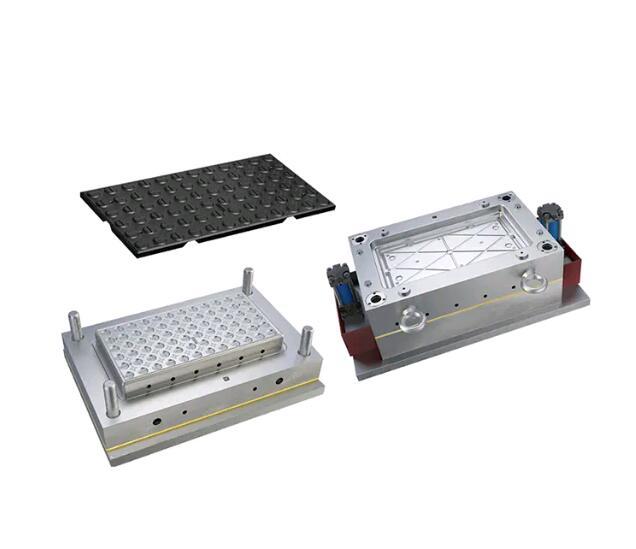One of the key roles of SMC molds is their ability to produce components with intricate shapes and geometries that would be difficult or expensive to achieve using traditional manufacturing methods. The flexibility of the SMC molding process allows for the creation of parts with complex curves, undercuts, and fine details. This versatility makes SMC molds ideal for applications requiring custom, high-performance components that cannot be easily achieved with conventional materials like metals or plastics.
For example, in the automotive industry, SMC molds are used to create lightweight body panels and structural components that reduce vehicle weight while maintaining strength and impact resistance. The ability to mold these components with intricate designs allows manufacturers to meet design and performance goals.
SMC molds play a vital role in streamlining the production process. Once designed and fabricated, an SMC mold can be used repeatedly to manufacture large quantities of identical parts, making the process highly efficient. The high cycle times of SMC molding—ranging from a few minutes to half an hour—allow manufacturers to produce large volumes of parts in a relatively short period. This is particularly advantageous in industries where high-demand, large-volume production is required.
In addition to speed, SMC molding also offers cost savings due to its ability to use relatively low-cost materials and the reduced need for post-processing or finishing. These efficiencies make SMC molding a preferred choice for manufacturers seeking to reduce production costs while maintaining high standards of quality.
SMC molds contribute significantly to the strength and durability of the parts produced. The materials used in SMC molding, typically reinforced with glass or carbon fibers, offer excellent mechanical properties such as high tensile strength, impact resistance, and fatigue resistance. When combined with the molding process, these materials are able to form robust, lightweight components that can withstand harsh environments and heavy use.
For instance, in the automotive industry, SMC molds are used to create parts like bumper beams, fenders, and engine covers that must be durable enough to resist impacts and temperature fluctuations while still being lightweight to improve fuel efficiency.

https://www.compositemould.com/product/smc-bmc-mould/smc-flooring-mould2.html
Product Application
construction, sites, water system, telecom and etc
Mould Type
Compression mould
Mould Steel
P20 / S50C / S45
Mould Cavity
Single cavity / Multiple cavities / Multiple cavities with interchangeable inserts
Heating System
Oil heating / Electrical rods heating
Ejection System
Hydraulic eject with air assist / hydraulic pins
Mould Cycle
depends on mould steel, P20 could support around 300 thousand lifespans
Lead Time
50 days
